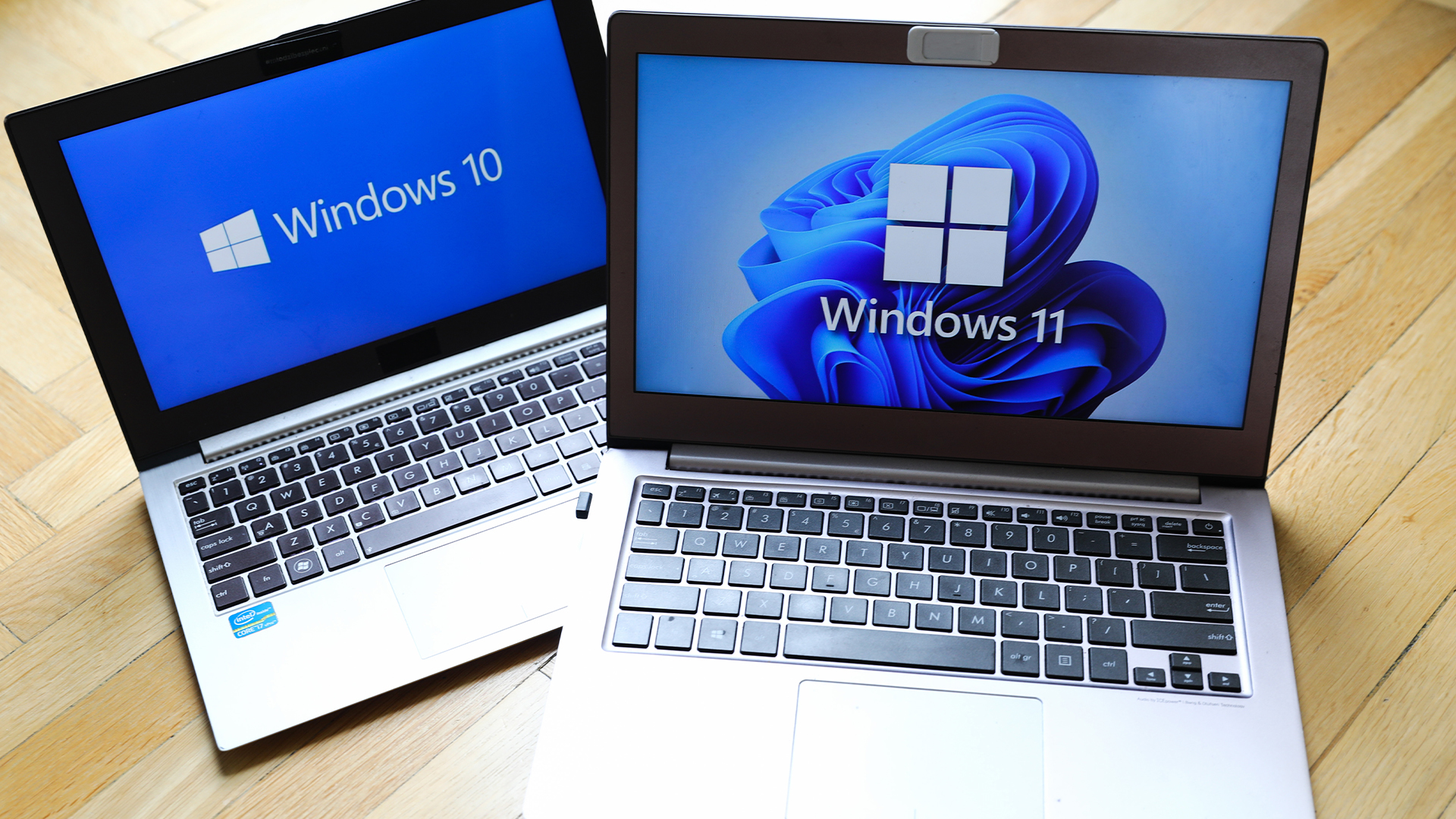Microsoft vs Windows XP
Microsoft has given itself one year to cut ties with Windows XP. But does the decade-old operating system remain a viable business option?

Sign up today and you will receive a free copy of our Future Focus 2025 report - the leading guidance on AI, cybersecurity and other IT challenges as per 700+ senior executives
You are now subscribed
Your newsletter sign-up was successful
Time Please
So what can Microsoft do? Well, not for the first time, it's officially called time on Windows XP (and Office 2003 at the same time). The company has announced that as of April 2014 that's a good year of notice support for Windows XP will cease.
Not for the first time, this has been met with something of a communal shoulder shrug. But there are consequences here worth noting. Whilst there's an argument that very few of us have ever picked the phone up to ring Microsoft's technical support department in the first place, support in this instance also covers the technical and security updates that XP still benefits from. Given the continual vulnerability of XP, such security patches very much have their place. Granted, it's been little secret for some time that Microsoft had no plans for further XP service packs, but for cash-strapped small and medium size enterprises in particular, there are real economies to an operating system such as XP.
It's put itself in an unusual situation of having to criticise one of its own products, repeatedly, to sell a new one.
It retains, after all, compatibility with the many Microsoft programs, standards and ways of working that still dominate modern day business, but the cost and footprint is significantly less. The hardware required to run Windows XP starts at just a 233MHz computer with 64MB of RAM and 1.5GB of hard disk space. Should the requirements of an organisation's IT be limited word processing, a bit of e-mail, the odd spreadsheet then that remains ample. Granted, it's not ideal, but given the cost of upgrading an operating system and investing in the new hardware to run it, it's fully understandable that many have chosen to ignore everything that's followed since. Office 2003, for similar reasons (in that it does what most people need), has remained popular.
Ovum, in fact, is overtly recommending that people not be spooked by Microsoft's announcement of support cessation. Arguing that the cost of upgrades for even smaller organisations could run into the thousands, it's put forward two recommendation. One, to consider using desktop virtualisation technologies instead. And two, to consider migrating from laptops to tablet computers if you do plan to upgrade, which may mean people abandon Windows altogether. After all, if an organisation is planning a major technology upgrade, then who says a jump from XP to another version of Windows is the ideal way forward?
The Next Year
Microsoft faces a big challenge in the year ahead. It's effectively set itself a target of moving a mass of people, greater than the combined user base of Windows Vista and Windows 8, to a different product in a year. Unsurprisingly, many feel the firm simply won't succeed, citing that third parties may be willing to pick up some of the support load from Microsoft anyway.
Sign up today and you will receive a free copy of our Future Focus 2025 report - the leading guidance on AI, cybersecurity and other IT challenges as per 700+ senior executives
The Microsoft argument is that continuing to use XP opens up a terminal to vulnerabilities (you can guess one of the instant counter-responses to that without taking a breath), but it's put itself in an unusual situation of having to criticise one of its own products, repeatedly, to sell a new one.
It's not working, either. People are moving away from Windows XP, but at their own pace, not the one Microsoft has set. The firm has already had to extend support past its usual decade. It's not entirely inconceivable, although it is unlikely this time, that it may do so again.
If it doesn't, it seems inevitable that, even come mid-April next year, Windows XP will continue to be the second most popular operating system in current use. Notwithstanding that people don't like being effectively told what to do at the best of times, and appreciating that Microsoft is offering upgrade incentives, the question remains for businesses as to whether XP is still a good value, entirely competent option for their needs. Nobody buying a new machine is taking delivery of it ready-installed with Windows XP, and the slow decline of usage, even if left unchecked by Microsoft, would continue.
But as Windows 8 fails to convert people to a different way of working with the world's most popular operating system, and end users become savvier to not being bullied into changes they don't want, Windows XP's funeral is some way off yet. Furthermore, a more convincing business case for upgrading other than announcing yet another cut off date would be helpful too.
-
 Pulsant unveils high-density data center in Milton Keynes
Pulsant unveils high-density data center in Milton KeynesNews The company is touting ultra-low latency, international connectivity, and UK sovereign compute power to tempt customers out of London
-
 Anthropic Labs chief claims 'Claude is now writing Claude'
Anthropic Labs chief claims 'Claude is now writing Claude'News Internal teams at Anthropic are supercharging production and shoring up code security with Claude, claims executive
-
 Windows 10 extended support costs could top $7 billion
Windows 10 extended support costs could top $7 billionNews Enterprises sticking with Windows 10 after the October deadline face huge costs
-
 Tiny11 review: Windows 11 with only 2GB of RAM
Tiny11 review: Windows 11 with only 2GB of RAMReview A version of Windows 11 for older machines that don't meet the full requirements
-
 Red Hat Enterprise Linux becomes foundational operating system for Cohesity Data Cloud
Red Hat Enterprise Linux becomes foundational operating system for Cohesity Data CloudNews New strategic partnership between Red Hat and Cohesity aims to drive innovation in the data security and management space
-
 Ubuntu shifts to four-week update cycle
Ubuntu shifts to four-week update cycleNews Critical fixes will also come every two weeks, mitigating the issues involved with releasing prompt patches on the old three-week cadence
-
 AlmaLinux follows Oracle in ditching RHEL compatibility
AlmaLinux follows Oracle in ditching RHEL compatibilityNews Application binary compatibility is now the aim with 1:1 now dropped
-
 How big is the Windows 10 cliff-edge?
How big is the Windows 10 cliff-edge?ITPro Network With some comparing the upcoming Windows 10 end of life to Windows XP, we ask members of the ITPro Network for their insight
-
 Everything you need to know about the latest Windows 11 updates - from bug fixes to brand-new features
Everything you need to know about the latest Windows 11 updates - from bug fixes to brand-new featuresNews Two new cumulative updates are on the way and will be installed automatically on Windows 10 and Windows 11 machines
-
 How to download a Windows 11 ISO file and perform a clean install
How to download a Windows 11 ISO file and perform a clean installTutorial Use a Windows 11 ISO to install the operating system afresh